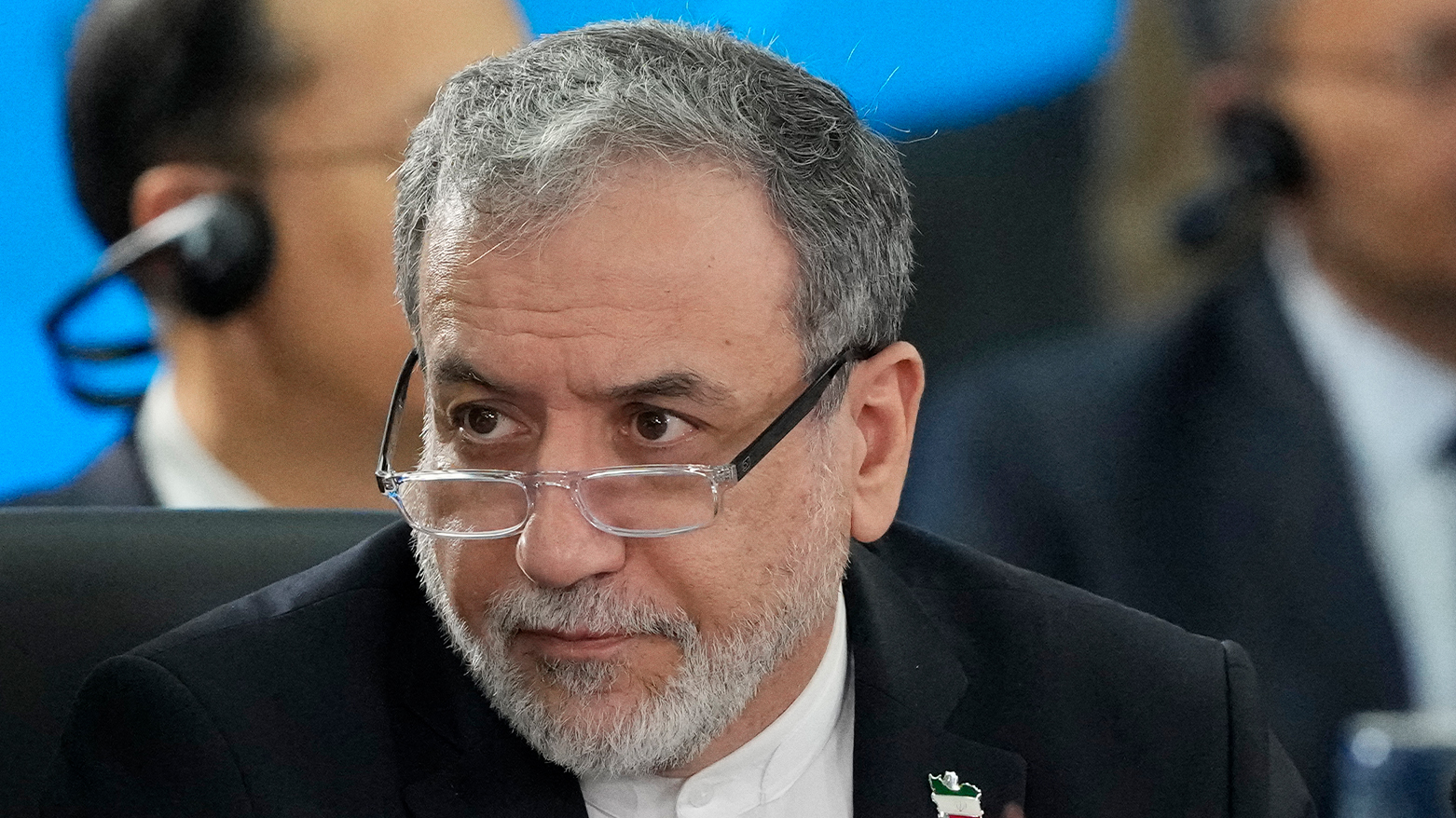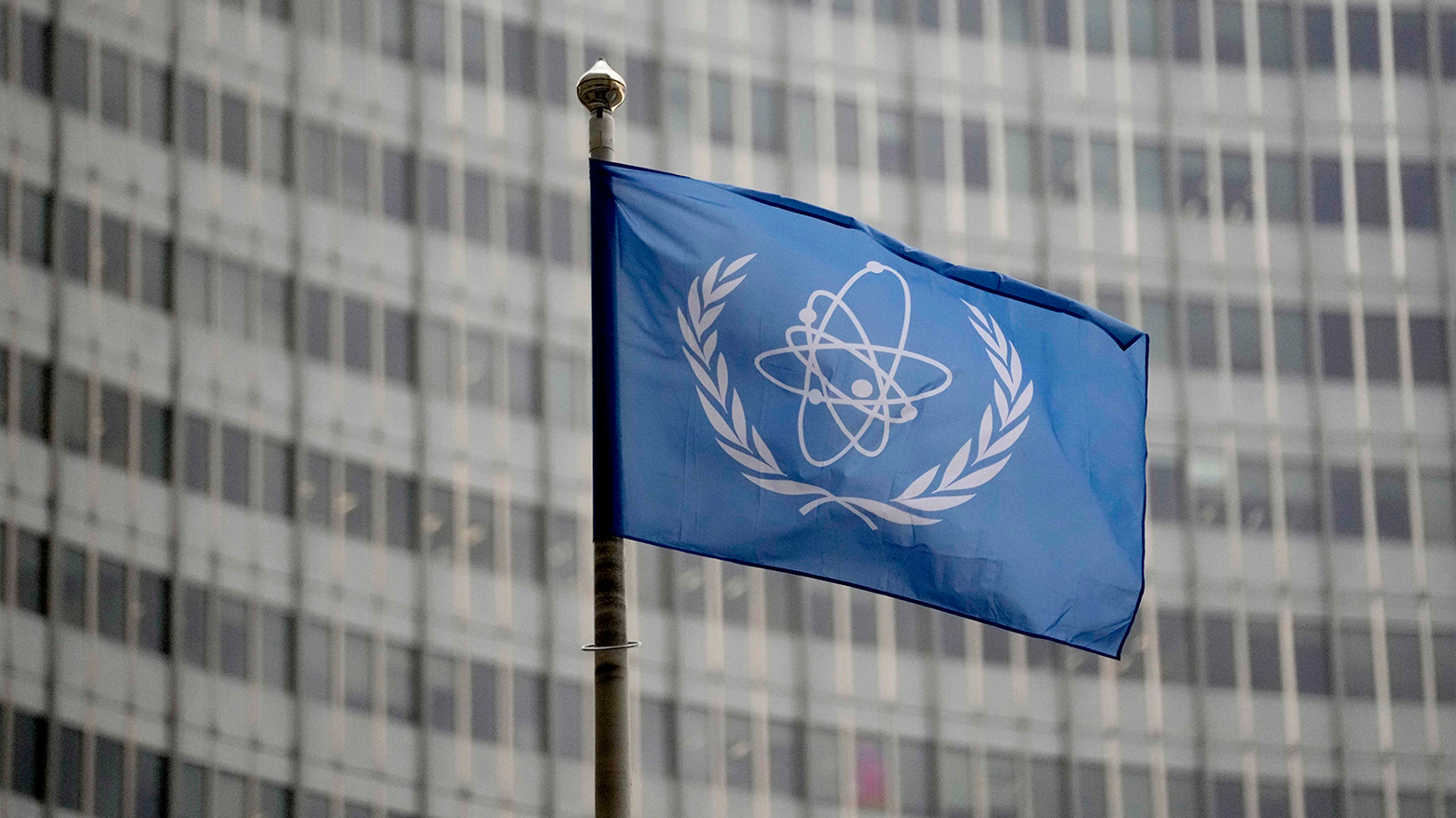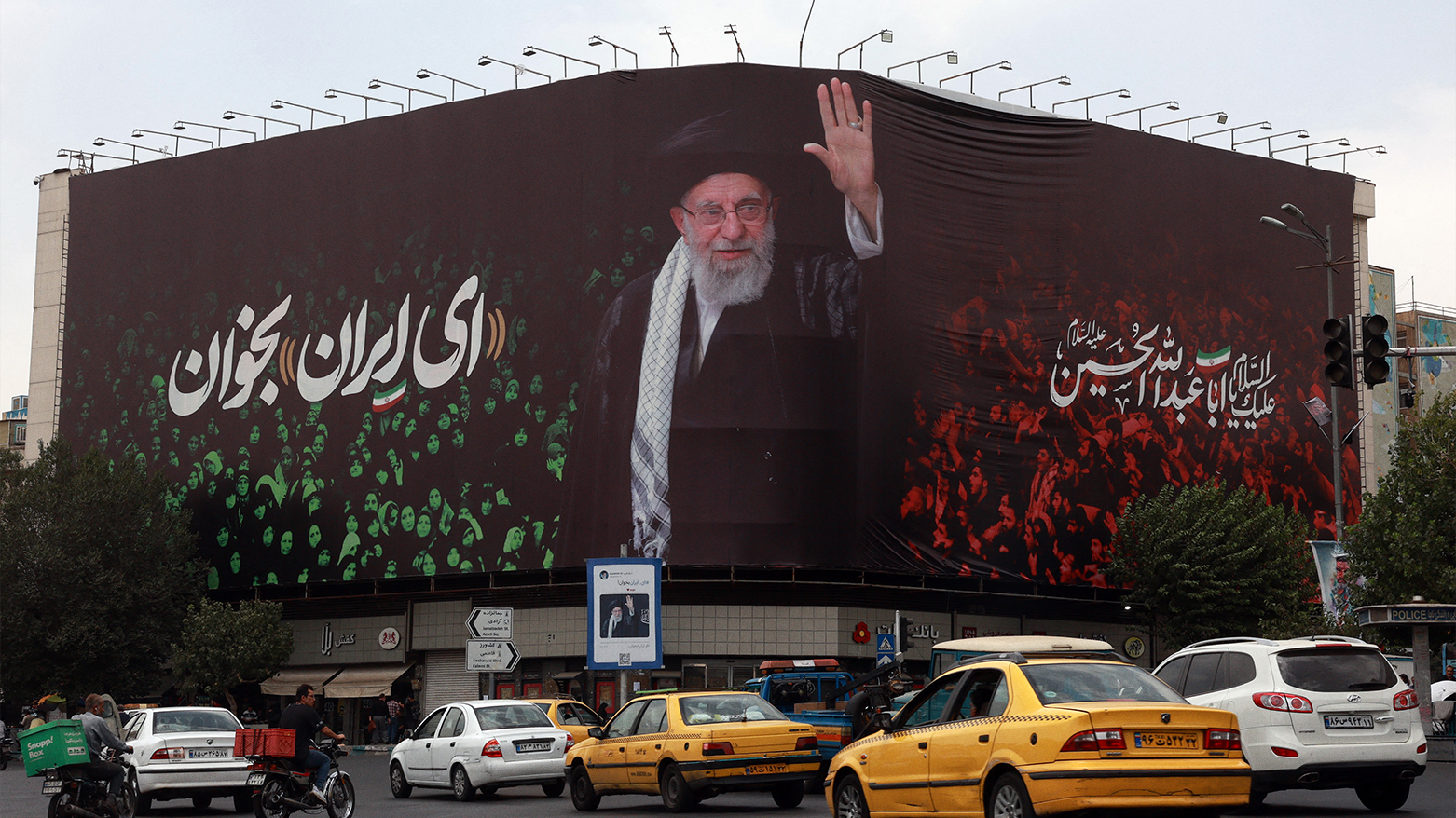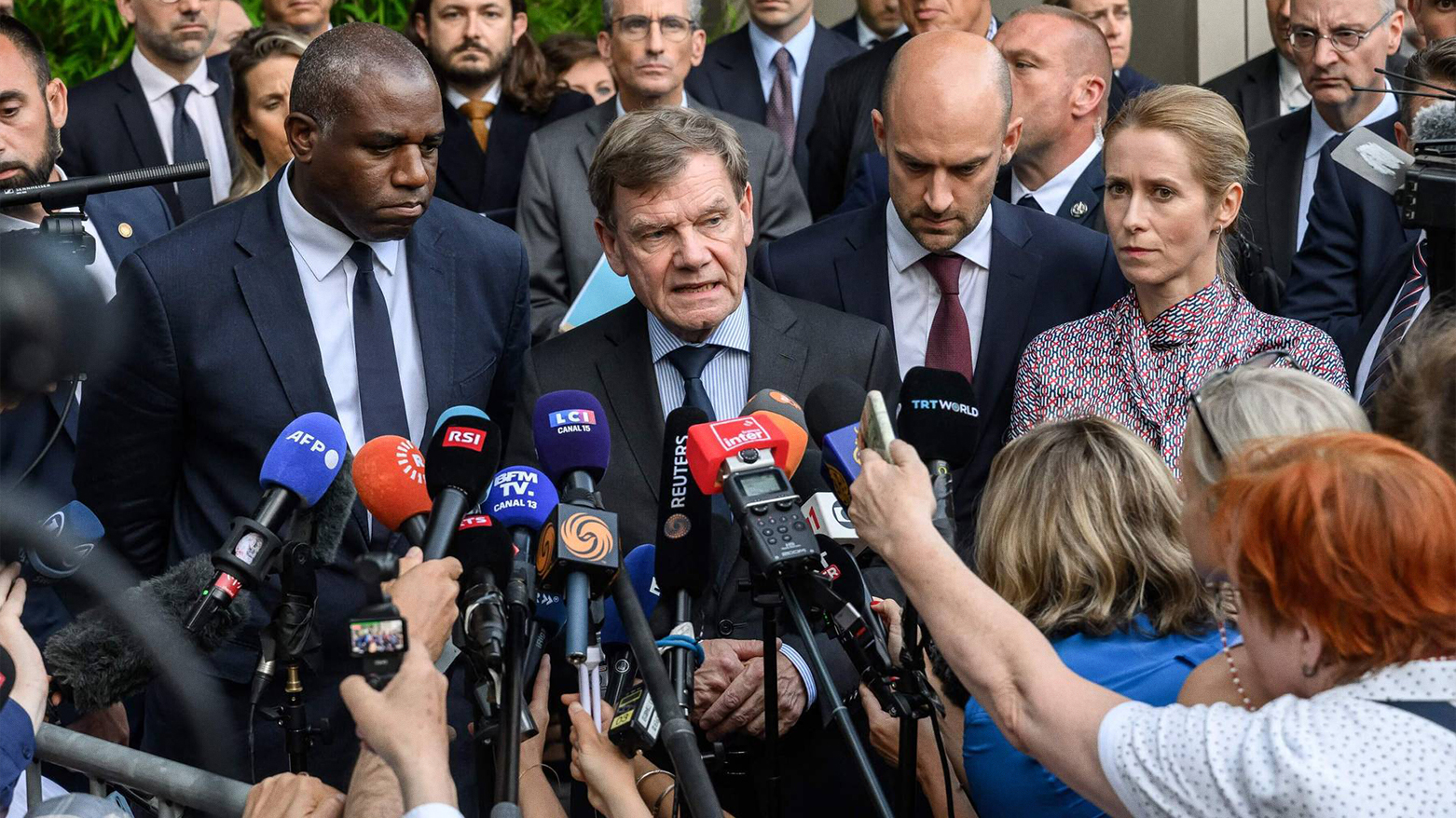'Snapback Mechanism Same as Military Attack,’ Says Iran's FM
Iran’s FM Araghchi told Le Monde Iran is open to nuclear talks if the US offers guarantees and respect, but ruled out missile negotiations. He condemned attacks on nuclear sites, defended enrichment rights, and said diplomacy requires mutual accountability.

By Kamaran Aziz
ERBIL (Kurdistan24) – Iran's Foreign Minister Abbas Araghchi stated that Iran remains open to nuclear dialogue with Washington if the US provides guarantees against attacks, commits to mutual respect, and acknowledges mistakes, while ruling out negotiations on its ballistic missile program described as defensive, in a written interview with French outlet Le Monde conducted remotely due to security reasons.
In the Le Monde interview, Araghchi confirmed Iran's conditions for returning to nuclear negotiations, emphasizing that it must be guaranteed that in the future, during negotiations, the US does not launch a military attack.
Araghchi addressed claims by Donald Trump that the Iranian nuclear program was destroyed during Israeli and American strikes between June 13 and June 25, contrasting with IAEA head Rafael Grossi's assessment that the program was delayed by several months. In the Le Monde interview, Araghchi said that after the United States attacked facilities under IAEA supervision, serious damage was caused, and Iran is currently assessing it, adding that Iran is within its rights to seek compensation.
He told Le Monde that to claim a program has been annihilated or that a nation should end its peaceful nuclear program, which aims to meet needs in energy, medicine, pharmaceuticals, and agriculture, is a miscalculation. Araghchi stated in the interview that a program under constant IAEA surveillance and operating within international law is not merely made up of buildings and machinery, and the will of a people who have succeeded in reaching the highest levels of knowledge cannot be destroyed.
Araghchi noted in Le Monde that IAEA reports have repeatedly acknowledged no observed diversion toward military activities in Iran's peaceful nuclear program. He described what is truly irreversible as the blow dealt to the non-proliferation system, with the attack on nuclear facilities under IAEA supervision and the lack of condemnation from Western countries amounting to an attack on international law and specifically on the non-proliferation system.

In the Le Monde interview, Araghchi explained that since 2003, Iran's effort has been to develop its peaceful nuclear program within the framework of international law and with the participation of countries possessing nuclear technology to build trust, but sanctions and contradictory behavior from partners in the JCPoA have made this path complicated.
Regarding willingness to resume negotiations with the United States after the American bombings, Araghchi told Le Monde that Iran has always shown a fundamental willingness to negotiate on the basis of mutual respect. He stated that the adversary trampled a multilateral and international agreement by unilaterally withdrawing from the JCPoA in 2018, violated Iran's airspace in the middle of negotiations, and attacked facilities.
Araghchi said in the interview that these attacks could have caused an environmental and human catastrophe, affecting not only the safety and health of the Iranian people but also that of the populations of the region for years to come. He emphasized to Le Monde that diplomacy is a two-way street, and it was the US that broke off negotiations and turned to military action, making it essential that responsibility for these mistakes is acknowledged and a clear sign of a change in behavior is observed.
On whether negotiations are planned in the coming days, Araghchi informed Le Monde that currently, diplomatic exchanges are underway through some friendly countries or mediators, and the format of discussions may change depending on the conditions previously mentioned. He added that dialogue has always been, and remains, at the core of Iran's foreign policy, and there is no single example in history where Iran has violated this principle.
Addressing Trump's claim to have saved Supreme Leader Ali Khamenei from death and threats of further attacks if uranium enrichment continues, Araghchi told Le Monde that the US will only become great when it upholds great moral values. He described the supreme leader's position as unique in Iran's Constitution, approved by the majority of the Iranian people, and stated that Iran will not allow anyone, under threat of war, to deprive the nation of its will. Furthermore, Araghchi said in the interview that contrary to its claims and previously stated objectives, Israel did not achieve victory.

On the proposal for a consortium between Iran and certain regional states to establish a civilian nuclear program, Araghchi stated in Le Monde that Iran has always welcomed ideas based on international and regional cooperation and transparency, though successes have been rare. He cited examples like cooperation with France in Framatome in the 1970s, where the French government blocked Iran's activities and froze dividends, and similar issues with Iran-Germany cooperation in the 1970s.
However, Araghchi told Le Monde that all regional cooperation is open for negotiation, with the only condition being that the rights and interests of the Iranian people are not ignored. He added that Iran has repeatedly stated it is ready to engage in dialogue and cooperation to develop its peaceful nuclear technology with any responsible country, especially its neighbors.
Regarding readiness to give up uranium enrichment and to what level Iran would reduce it as part of an agreement, Araghchi explained in the Le Monde interview that Iran conducts uranium enrichment based on its rights under the NPT, and has always said it has no military intentions. He noted that even after being attacked, Iran has not deviated from its official policy on nuclear armament, based on a religious decree considering the production, accumulation, and use of weapons of mass destruction to be inhumane and un-Islamic.
Araghchi said to Le Monde that the level of enrichment is determined by Iran's needs, with a single-digit level set under the JCPoA at 3.67%. He described how, when supplier country Argentina failed to meet commitments for the Tehran research reactor used for medicines and radiopharmaceuticals, Iran proceeded to enrich to 20% for that purpose, then to 60% to demonstrate that threat and pressure are not solutions. Araghchi emphasized that the principle of enrichment is both a right and a need for Iran, but details can be negotiated within a balanced, reciprocal, and guaranteed agreement.
On agreeing to negotiate the ballistic missile program as requested by certain European capitals, particularly Paris, Araghchi questioned in Le Monde why France tolerates long-range missile development or sales by some countries but questions Iran's limited-range ballistic defense program, part of its defensive arsenal. He stated that Iran has repeatedly said its missile program is purely defensive and deterrent, and in a context of constant threats and attacks by Israel and the US, it is unreasonable to expect Iran to abandon its defensive capabilities. Araghchi added that just as European countries defend their right to self-defense, Iran reserves its legitimate right to do the same.

Addressing French Foreign Minister Jean-Noël Barrot's statement that France and Europe want a role in future negotiations but could reimpose sanctions via the snapback mechanism if Iran refuses a strict framework, Araghchi told Le Monde that the threat of sanctions does not help diplomacy. He said that if Europe seeks a central role, it must demonstrate independence and neutrality, such as by condemning Israeli aggression and the American attack on Iranian facilities, which France has not done. In this context, Araghchi questioned how Iran can be asked to abide by international rules.
Araghchi stated in the interview that Europe can play a constructive role in preserving the nuclear agreement and reducing tensions if it condemns Israel's aggressive actions. He supported the constructive role of the E3 in rebuilding the JCPoA, provided they avoid provocative actions like threatening snapback, which would equate to a military attack and mark the end of France and Europe's role in Iran's peaceful nuclear program from Iran's perspective.
On considering leaving the NPT, Araghchi informed Le Monde that Iran has no such intention at this time, even under difficult conditions of sanctions, assassinations of scientists, and sabotage, showing respect for the NPT, but believing respect should not be unilateral.
Regarding killings of senior military officers and scientists in what Israel calls targeted assassinations, indicating Israeli intelligence infiltration, Araghchi said in Le Monde that the assassination of Iranian scientists, military officials, and their families is a flagrant violation of international law and demonstrates Israel's terrorist and irresponsible nature. He described it as not a surprise but a cowardly act, and noted that Iran, relying on its security and intelligence capabilities and public cooperation, has identified and neutralized many such networks since the attacks.
On how many detainees were killed in the attack on Evin prison and explaining hundreds of arrests amid apparent high-level Israeli infiltration, Araghchi told Le Monde that the attack on a prison is an inhumane act contrary to international standards and must be firmly condemned. According to the judiciary's report, he said, 79 people—including Evin prison staff, soldiers on duty, detainees and their families in the visiting room, as well as some neighbors—were killed.
Regarding arrests of suspects who acted during the Israeli attack to carry out sabotage, Araghchi stated in the interview that Iran, in accordance with national laws, fulfilled its responsibility to protect citizen security.
On French nationals Cécile Kohler and Jacques Paris, charged with espionage for Mossad after over three years in detention, with families denying charges, and when they will learn their fate, Araghchi informed Le Monde that legal proceedings are being conducted in accordance with Iran's laws based on the crime committed. He added that consular contacts have been established, and on July 1, the French embassy's chargé d'affaires met with them as scheduled.
Finally, confirming the arrest of French-German dual national Lennart Monterlos, missing since June 16 while cycling in Iran, Araghchi told Le Monde that he was arrested for committing a crime, and an official notification has been transmitted to the French embassy.